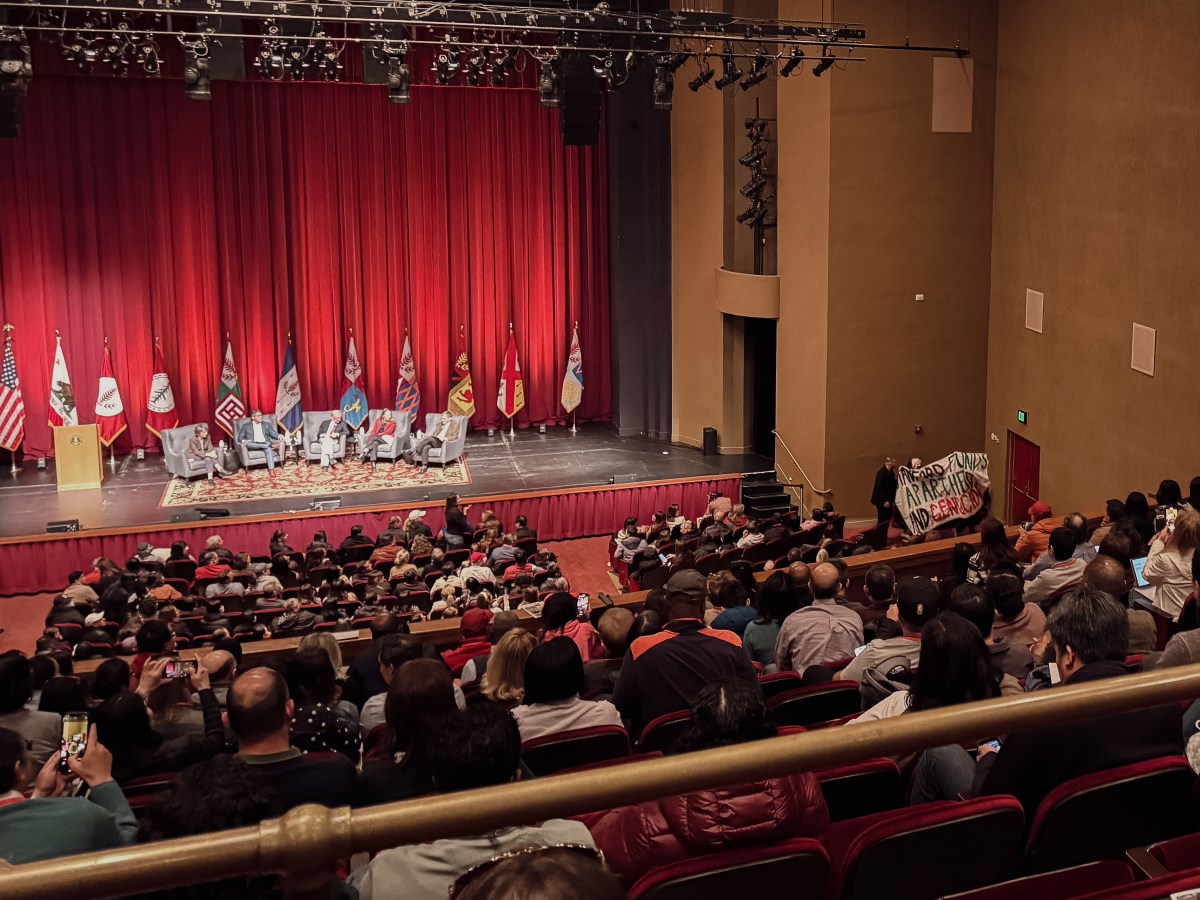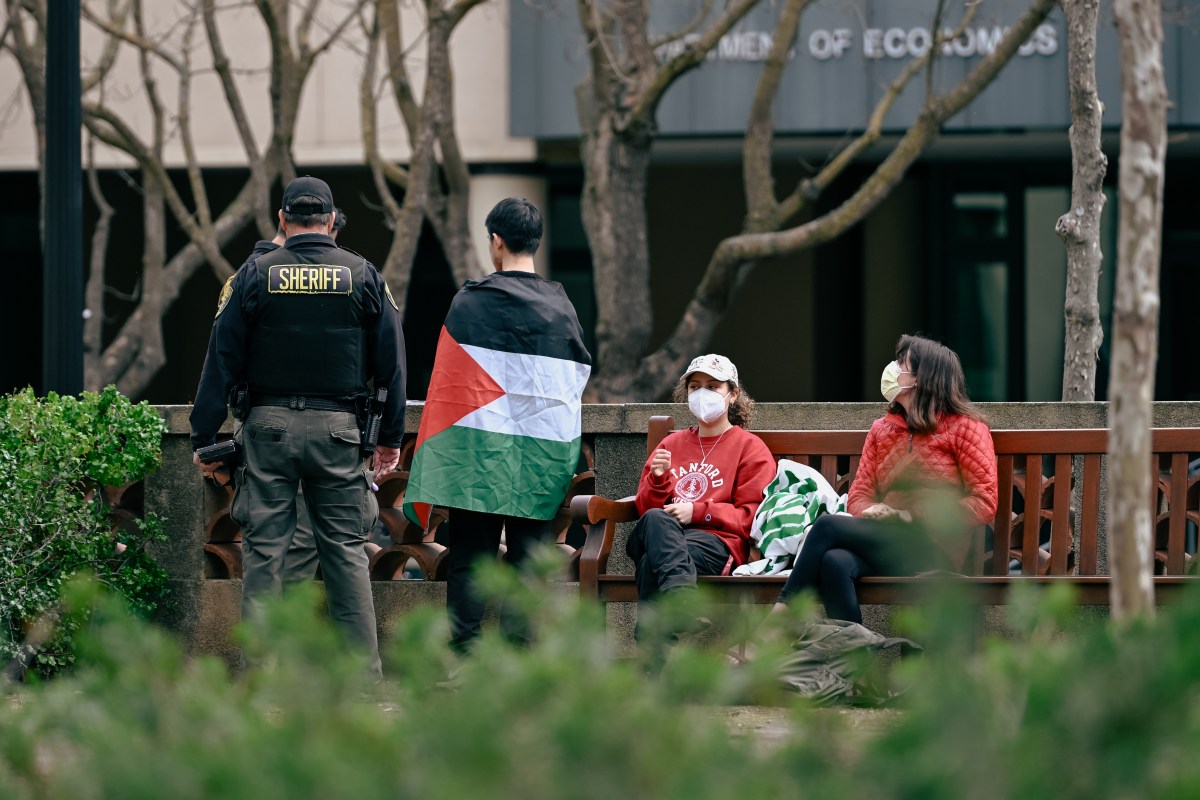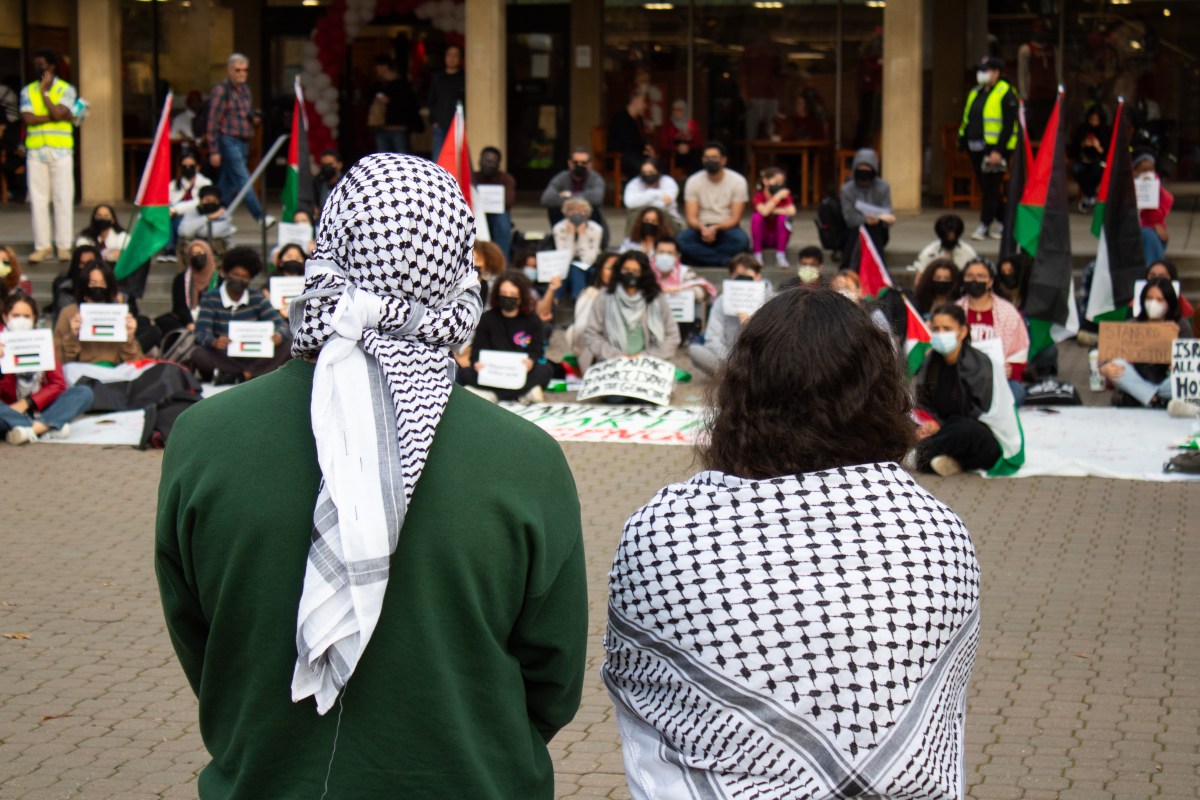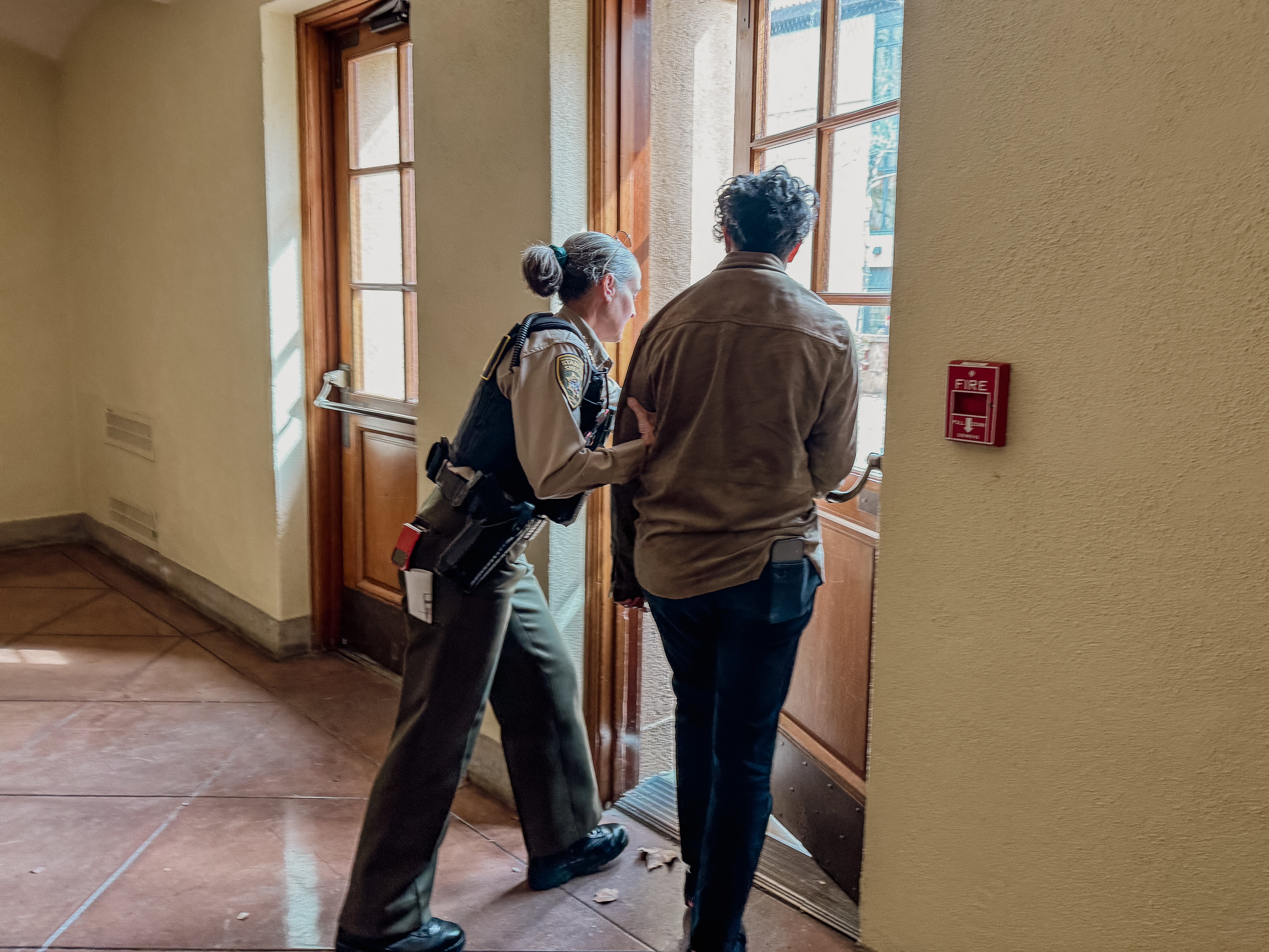Pro-Palestine protestors from the Sit-In to Stop Genocide disrupted President Richard Saller and Provost Jenny Martinez’s in Memorial Auditorium today at a welcome session, which commenced Family Weekend events.
The protestors were escorted out by security and cited for misdemeanors. Martinez said they would also face disciplinary action.
Throughout the panel, protesters stood, shouted and chanted at the panelists. Around 45 minutes into the session, protestors unfurled two banners directly next to the stage and threw slips of paper from the balcony reading “29,000+ Gazans killed,” “Israel bombs, Stanford profits” and “Stanford uses scare tactics on your kids.”
Protestors disrupted Saller and Martinez with chants like “Palestinian blood is on your hands,” “Free Palestine” and “Up with liberation, down with occupation.” One protestor told the audience her father was killed by Israeli forces in Gaza.

The protesters were escorted out of the auditorium, some forcibly, by staff and security. They were met outside by the Santa Clara Sheriff’s office, who detained and cited 18 protestors with misdemeanors for interrupting a school event. According to the protestors, they were given April court appearance dates. Cited protestors gathered in front of the auditorium with their banners and continued chanting.

In addition to Saller and Martinez, the panel included lead administrators like Humanities & Sciences Dean Debra Satz, Lanier Anderson and Samuel Santos, interim vice provost for undergraduate education and associate vice provost for inclusion, community and integrative learning respectively.
Audience members began booing protestors as the disruptions continued. Many parents shouted back at the protesters, calling them disrespectful.
One parent in the front row stood and faced the audience, asking protestors to stop: “We traveled to learn about programs for our children. To all the students still in the room, we hear you, we care, we care about your pain. Please make an appointment with your administrators.” Resounding applause filled the auditorium.
Katie Eder ’24, a protestor and sit-in representative, said they protested at the event “to vocalize the demands of the student body: for Stanford administration to address their ongoing role in enabling the genocide in Gaza.”
Other demands include divesting from and boycotting entities and companies “complicit in Israeli war crimes, apartheid, and genocide,” issuing a statement that calls for a ceasefire, providing resources to Palestinian diaspora, Arab and Muslim students, identifying and addressing educational biases against Palestinian and Arab issues and creating five student seats on the Special Committee on Investment Responsibility.
The sit-in was disassembled last week after 120 days, making it the longest student sit-in in University history. It was removed by the Stanford University Department of Public Safety (SUDPS) and UG2 service workers, following two negotiation meetings between student representatives and Saller and Martinez.
Following these meetings, Saller agreed to “raise the issue” to the Board of Trustees of investment transparency, divestment from weapons manufacturers and military contractors and the addition of student seats to the Special Committee on Investment Responsibility.
Sit-in organizers said Saller and Martinez also agreed to “deliberate about coordinating with Palestinian students to release a statement about their experiences over the past four months.”
The University has yet to release a statement about the negotiations.
“We made it very clear to President Saller and Provost Martinez during their negotiation process with the Sit-In to Stop Genocide that if they were not going to negotiate in good faith with our demands, then we’re going to escalate in our call for the demands. That’s exactly what we have done today,” Eder said.
At the Friday event, administrators and audience members implored protestors to be respectful and engage in civil discourse. Some sit-in organizers expressed frustration at the request.
“We had a place where we were having discourse every single day at the Sit-In to Stop Genocide and the administration chose to shut that down in the name of ‘our safety,’” Eder said.
She criticized the sit-in’s removal ahead of family weekend: “They should have expected this.”
Some parents, who spoke on the condition of anonymity, expressed sympathy for the protestors.
One criticized the response from Martinez and other administrators. “I was upset at the way the administration treated the protesting,” they said. “I feel like the students have a right to voice their concerns.”
Another parent in the audience agreed: “University is a place for disagreement. If the students are protesting, that means that the leadership has not listened to various points of view.”
If the University does not create space for discourse, “disruptions will happen all day long and they should,” they said.
However, many parents seemed averse to the protestors. Some booed, and several applauded administrators’ response.
Nikhil Chanani, a parent who attended, said “this is an extraordinarily challenging time for University administrators, and I applaud them for their efforts.”
Other parent attendees said they encouraged free speech and student activism, but not during the parent weekend welcome session.
Arjun Marwha, a student’s family member, said people who wanted to vocalize an opinion to attendees should have done so outside. “It disrupts the 99% of people who were in there just purely trying to listen,” he said.
Eder acknowledged that parents expressed frustration with protestors, but responded that “the reality is we wouldn’t have been inside if not for Stanford’s role in investing in and enabling the genocide that’s happening in Gaza.”
Sit-in representatives said they intend to advocate throughout Family Weekend. They planned a protest outside Bishop Auditorium at noon on Saturday and Palestinian banners hang in dorm windows, some passed out by sit-in members earlier this week.

Friday afternoon, sit-in members organized a “die-in” in White Plaza next to the bookstore. A symbolic protest to mourn civilians killed in Gaza, demonstrators read names of Palestinians killed in the Israel-Gaza war.
